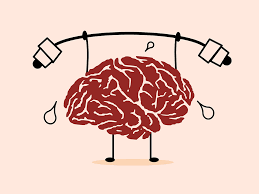 Mysterious. Complex. A three-pound super computer that functions beyond our imagination.
Mysterious. Complex. A three-pound super computer that functions beyond our imagination.
The adult human brain is a fascinating network of around 100 billion nerve cells (neurons) with branches connecting at over 100 trillion points, according to the Alzheimer’s Association Brain Tour. Memories, feelings, and thoughts are formed by signals traveling through this “neuron forest.” Awe-inspiring. Capable of unimaginable feats. But with potential to go wrong.
What is the biggest health fear of Americans today?
It’s no longer cancer. It’s not stroke or heart disease. According to the Marist Institute for Public Opinion, it’s the fear of developing Alzheimer’s disease. A national poll by Research! America and PARADE magazine showed that adults were more than twice as likely to fear losing their mental capacity as their physical ability.
So how do we alleviate those fears? Is an aging, diseased brain all part of growing older?
Overwhelming evidence says no! Dozens of studies support the fact that lifestyle choices can keep our brains healthy, even overcoming genetic predispositions in some cases.
There has yet to be discovered a single magic bullet that insures brain health as we age. Yes, we Westerners love to search for the instant miracle pill to solve our health issues. But our brain is not that simple. Keeping our synapses humming comes not just from consuming Omega-3s daily, or exercising five days a week, but from a combination of factors all working together.
We have choices, plus data from reputable studies to guide those choices!
You may have heard it said that what’s good for your heart is good for your brain. Brain health experts agree. Controlling blood pressure and embracing healthy heart guidelines helps both these critical parts of our human bodies.
Here are some proven tips:
- Feed your brain healthy nutrients.
- Deliver oxygen to your brain cells through exercise.
- Work hard to get regular, good quality sleep.
- Embrace new mental stimulation.
- Reduce damaging stress through daily meditation and prayer.
- Enhance existing social connections and explore new ones.
- Laugh and lighten up! Your brain will love you for it.
In addition, we can stack the brain health deck in our favor by controlling our blood sugar.
While our brain depends upon glucose to operate efficiently and keep our neurotransmitters humming, too much, as evidenced in people with Type 2 diabetes, is harmful.
Check out this article from Harvard Medical School Department of Neurobiology regarding sugar and the brain.
Then there’s the gut-brain connection.
Researchers at Johns Hopkins have found that digestive system activity may affect cognition, both memory and thinking skills. They report evidence of a “second brain” contained in the walls of your digestive system. The scientific term is ENS – the enteric nervous system – and it’s not to be taken lightly. The ENS contains more than 100 million nerve cells that line your gastrointestinal tract – another reason that nutrition is critical to healthy brain function.
Thankfully, an important characteristic of our brains is a relatively recent discovery: Neuroplasticity. A landmark 1998 study building upon research conducted since the 1950s dispelled the notion that our brain cells are fixed at birth and die over time, a revelation considered by many as one of the most important discoveries of the 20th century.
Brain plasticity is our ability to change our brains, grow new neurons and connections, and repair damaged ones, through learning, experiences, and actions.
So take heart! Explore healthier choices for your brain. It’s never too late!
 Mary Webb Walker is a healthy lifestyle and well-being educator, focused on brain health and caregivers. After caring for her mom with Alzheimer’s, she co-founded Caregiver Sanctuary, an Alzheimer’s care partner support group. She also co-founded AccentHealth, a prevention network in U.S. medical waiting rooms. As a Brain Dame, Mary Webb is helping launch Memory Mondays, a social/educational program for people with early stage dementia.
Mary Webb Walker is a healthy lifestyle and well-being educator, focused on brain health and caregivers. After caring for her mom with Alzheimer’s, she co-founded Caregiver Sanctuary, an Alzheimer’s care partner support group. She also co-founded AccentHealth, a prevention network in U.S. medical waiting rooms. As a Brain Dame, Mary Webb is helping launch Memory Mondays, a social/educational program for people with early stage dementia.

